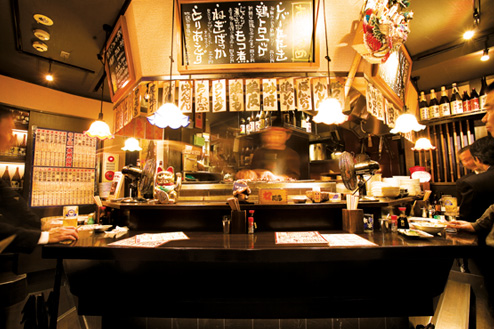Karaoke Bars
Daisuke Inoue had no idea his little music-playing contraption would launch the worldwide karaoke craze. But nearly four decades since Inoue’s invention (which he never patented), the pastime is still a mainstay of Japanese nightlife. In 2007 alone, the country’s estimated 130,000 karaoke rooms attracted 47 million customers. Tokyo has more than its fair share of venues in which to practise the art of the ‘empty orchestra’.
There are two bars offering the publicly humiliating style of singing popular in karaoke bars in the west: Fiesta and Smash Hits. The vast majority of karaoke establishments, however, rent out private rooms offering the bare essentials: TV, mics and room service. The largest chains are Karaoke-kan (www.karaokekan.jp), with more than 100 branches in central Tokyo, and Big Echo (www.clubdam.com/be), with over 70.
While there are countless options vying for your yen, those with comfortable cashflow looking for a memorable night of crooning should try Roppongi’s Lovenet, which offers 20 poshly appointed private suites (two to 100 people) with a hefty price tag. Aria Blu in Shinjuku has similarly lavish rooms with similarly large rates.
There are two bars offering the publicly humiliating style of singing popular in karaoke bars in the west: Fiesta and Smash Hits. The vast majority of karaoke establishments, however, rent out private rooms offering the bare essentials: TV, mics and room service. The largest chains are Karaoke-kan (www.karaokekan.jp), with more than 100 branches in central Tokyo, and Big Echo (www.clubdam.com/be), with over 70.
While there are countless options vying for your yen, those with comfortable cashflow looking for a memorable night of crooning should try Roppongi’s Lovenet, which offers 20 poshly appointed private suites (two to 100 people) with a hefty price tag. Aria Blu in Shinjuku has similarly lavish rooms with similarly large rates.













